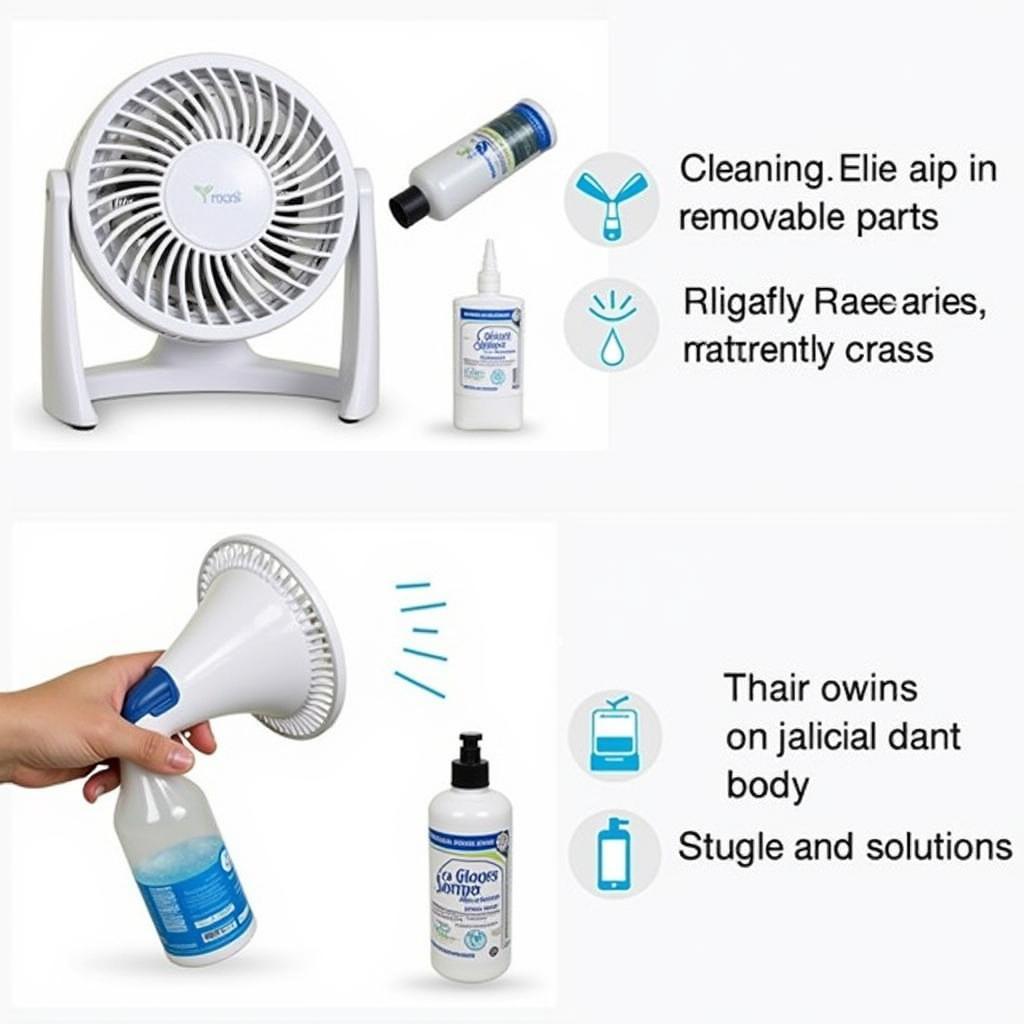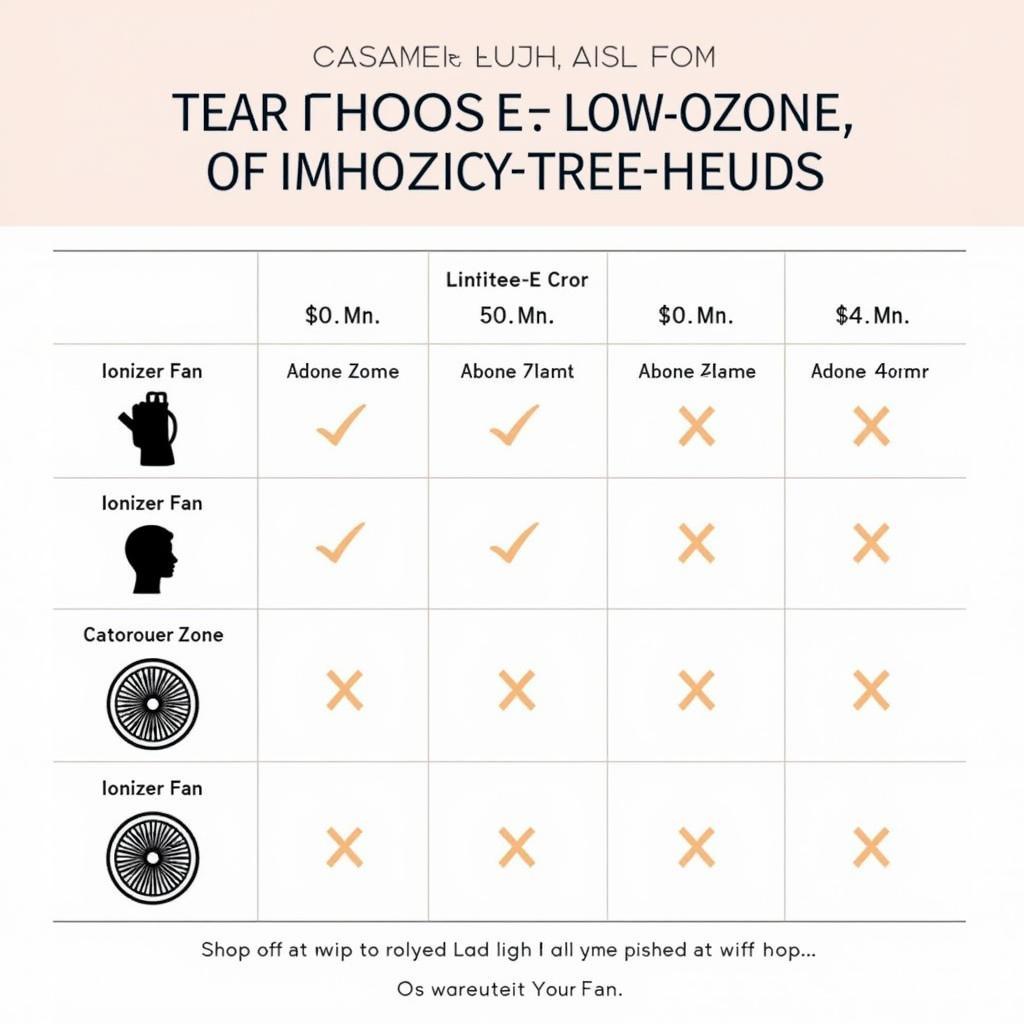An ionizer fan is more than just a typical cooling device. It combines the functionality of a fan with an air purifier by using negative ions to remove pollutants from the air. Within the first few seconds of operation, an ionizer fan starts emitting negatively charged ions, which attach to airborne particles like dust, pollen, and pet dander. This process makes them heavier and causes them to fall to the ground or stick to surfaces, effectively removing them from the breathable air. This makes ionizer fans a popular choice for allergy sufferers and those seeking cleaner indoor air.
Understanding Ionizer Fan Technology
How exactly does this technology work? Inside an ionizer fan, a high-voltage needle generates a stream of negative ions. These ions are released into the air and quickly bind with positively charged particles, creating larger clusters. The larger clusters then become too heavy to remain suspended and fall out of the air. You might notice a slight increase in dust on surfaces around the room when you first start using an ionizer fan. This is a normal part of the process and simply indicates that the ionizer is effectively capturing pollutants. Check out our electric fans vocabulary for more terms related to fans.
Benefits of Using an Ionizer Fan
Besides improved air quality, are there other advantages? Absolutely! Ionizer fans can offer a range of benefits including:
- Allergy Relief: By removing allergens from the air, ionizer fans can help alleviate allergy symptoms.
- Odor Reduction: Ionizer fans can neutralize odors caused by smoke, pets, and cooking.
- Improved Sleep: Breathing cleaner air can contribute to better sleep quality.
- Energy Efficiency: Compared to some air purifiers, ionizer fans can be more energy-efficient.
How to Choose the Right Ionizer Fan
What factors should you consider when purchasing one? Size, noise level, and features are key considerations. Choose a fan size appropriate for the room you intend to use it in. Consider the noise level, especially if you plan to use it in a bedroom. Some models offer additional features like oscillation, remote control, and timer settings. If you are looking for an affordable cooling option, consider checking out our cooler fan ac for sale.
Maintaining Your Ionizer Fan
How often should you clean it? Regular cleaning is crucial for optimal performance. The frequency depends on usage and the environment. Generally, cleaning the collection plates or grids every few weeks is recommended. Refer to the manufacturer’s instructions for specific cleaning guidelines.
“Regular cleaning of the ionizer fan is essential for its effectiveness,” says air quality expert Dr. Annabelle Carter. “Dust accumulation can hinder the fan’s ability to generate and distribute negative ions effectively.”
 Ionizer Fan Maintenance Tips
Ionizer Fan Maintenance Tips
Addressing Concerns about Ionizer Fans
Are there any potential downsides? Some ionizer fans produce ozone as a byproduct, which can be a respiratory irritant. Look for models certified as low-ozone or ozone-free. Another factor to consider is that ionizer fans do not filter out gases and volatile organic compounds (VOCs) as effectively as some other air purifiers. For a different type of fan, you might be interested in our airgo fan page.
“While ionizer fans offer several benefits, it’s important to be aware of potential drawbacks,” notes Dr. Michael Reynolds, a respiratory specialist. “Choosing a certified low-ozone model is crucial for minimizing health risks.”
 Ionizer Fan Ozone Comparison
Ionizer Fan Ozone Comparison
Conclusion
An ionizer fan can be a valuable addition to your home, offering both cooling and air purification benefits. By understanding how these devices work and choosing the right model for your needs, you can enjoy cleaner, fresher air. Remember to clean your ionizer fan regularly for optimal performance and to choose a low-ozone model for minimizing potential health risks.
FAQ
- How often should I clean my ionizer fan?
- Do ionizer fans remove all types of air pollutants?
- What is the difference between an ionizer fan and an air purifier?
- Are ionizer fans safe for people with asthma?
- Can I use an ionizer fan in a small room?
- How much noise does an ionizer fan typically make?
- Are there any energy-saving features available in ionizer fans?
For further support, please contact us at Phone Number: 0903426737, Email: fansbongda@gmail.com Or visit our address: Lot 9, Zone 6, Gieng Day Ward, Ha Long City, Gieng Day, Ha Long, Quang Ninh, Vietnam. We have a 24/7 customer service team.


